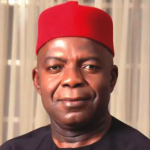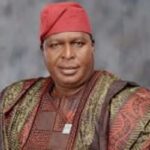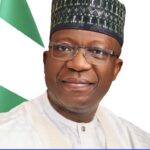By Philip Yatai
The world’s largest association for security professionals, ASIS International, on Thursday said that sub-Saharan Africa required strong partnership, security network and knowledge sharing to address its security challenges.
The Chief Executive Officer of the organisation, Mr Peter Fasae, stated this in Abuja, at a two-day Sub-Saharan Africa Security Conference organised by the group.
The News Agency of Nigeria (NAN) reports that the conference with the theme, “Managing Security Risks in VUCAD Africa”, had participants from different parts of the world.
According to Fasae, strategic planning, strong security network, sharing knowledge and lessons learned are key protocols in ensuring the protection that everybody needs.
“I think no matter where you live in the world, whether you are here in sub-Saharan Africa, or you are in another part of the world, there is always going to be a security challenge.
“However, the ability to partner with relevant stakeholders, share experience and knowledge, and build a strong security network will position any country to effectively address its security challenges.”
Fasae said that Nigeria and other sub-Saharan countries would significantly improve their security situation when they partnered and collaborated with other stakeholders.
He added that the security situation would continue to improve, if security conferences are constantly organised to share knowledge with men and women that are serious about protecting people and assets.
This, according to him, will further strengthen working in partnership with the government and private entities on security issues.
He described ASIS International as “a group of 34,000 men and women who are security management professionals, working every day to protect people and assets the best way they could.”
“The members rely on strong standards, guidelines and world-pronounced certifications that help them to be the best professionals that they can be in security management.
“We have a very strong presence in sub-Saharan Africa, with Nigerian being our biggest chapter.
“We are working very hard to strengthen public/private partnerships with government agencies, private companies, and consulting agencies.
“This, we believe, will ensure that people have access to current information on best practices in security management,” he said.
The keynote speaker, Mr Larry Gbrvio-Lartey, who spoke on managing security risk in volatile, uncertain, complex, ambiguous, and digital Africa, also stressed the need for strong collaboration to effectively address security challenges.
Also, Mr Ronny Saether of the Norwegian Embassy, Abuja, equally stressed the urgent need for more support and stronger collaboration among African governments and international community.
According to him, stronger collaboration is necessary in view of the persistent security threats and newer tactics.
“This is key to managing the security risks in the sub-Saharan sub-region and I believe its achievable.
“For Norway, Africa remains a priority. Our major goal is to promote the development of democratic institutions, good governance, peace and security, and the protection of human rights in Africa.”
Mr Edward Orim, Chairman, Local Organising Committee of the conference, expressed optimism that the outcome of the conference would have significant impact on the security situation in Nigeria.
Orim said that the recommendations from the conference would be presented to the Federal Capital Territory Administration with a view to improving security in the capital city. (NAN) (www.nannews.ng)
Edited by Oluyinka Fadare












